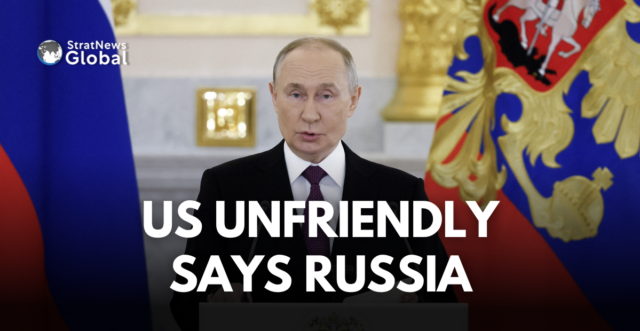The Kremlin issued a reserved response after Donald Trump’s claimed victory in the U.S. presidential election, emphasising that while Trump has made statements about ending the Ukraine war, the reality of his policy remains uncertain. Kremlin spokesperson Dmitry Peskov reminded reporters that the U.S. is still considered a hostile state, with deep involvement in the conflict against Russia in Ukraine.
Skepticism On U.S.-Russia Relations Despite Trump’s Win
In his statement, Peskov acknowledged Trump’s comments about peace in Ukraine but cautioned that actual changes would depend on U.S. actions after the inauguration in January. “We are talking about an unfriendly country, involved directly and indirectly in a war against us,” Peskov noted. While Russian state media showed a preference for Trump, Russian officials, including President Vladimir Putin, had publicly stated that the U.S. election outcome would not alter Russia’s foreign policy stance.
Kirill Dmitriev, head of Russia’s sovereign wealth fund, expressed some optimism about a potential “reset” in U.S.-Russia relations, recalling earlier efforts to improve ties in 2009 under former U.S. Secretary of State Hillary Clinton. However, previous “reset” efforts led to limited progress, with relations souring under later administrations.
Ukraine War And Russian Territorial Demands
Trump has previously promised a swift resolution to the Ukraine conflict if elected, though he has not provided details on how he would achieve peace. For his part, Putin has stated his willingness to negotiate a settlement, but only if Russia’s territorial gains—including control of Crimea, parts of Donbas, and significant portions of Zaporizhzhia and Kherson—are recognised. This stance has been rejected by Ukrainian leaders, who view Russia’s demands as an unacceptable capitulation.
Former Russian President Dmitry Medvedev echoed the Kremlin’s cautious view, suggesting that Trump’s win could mean a reduction in U.S. financial support for Ukraine. Medvedev stated that Trump’s businessman approach makes him reluctant to fund what he considers “hangers-on.” However, he noted that Trump’s stance on Ukraine could still be constrained by political pressures within the U.S.
Cautious Optimism Amid Historic Lows In U.S.-Russia Relations
While Trump’s victory opens the possibility of a shift in U.S.-Russia relations, Russian officials remain skeptical. Peskov indicated that the U.S. has the power to influence the conflict’s trajectory but stressed that any significant changes to U.S. foreign policy remain uncertain. Diplomatic sources suggest that U.S.-Russia relations are currently at their lowest point since the Cold War, with little indication of immediate improvement despite Trump’s campaign promises.
With Trump’s impending return to office, the Kremlin will be closely watching to see if his rhetoric translates into real action that could impact the direction of the ongoing conflict and U.S.-Russia relations.
(With inputs from Reuters)
Research Associate at StratNewsGlobal, A keen observer of #China and Foreign Affairs. Writer, Weibo Trends, Analyst.
Twitter: @resham_sng





